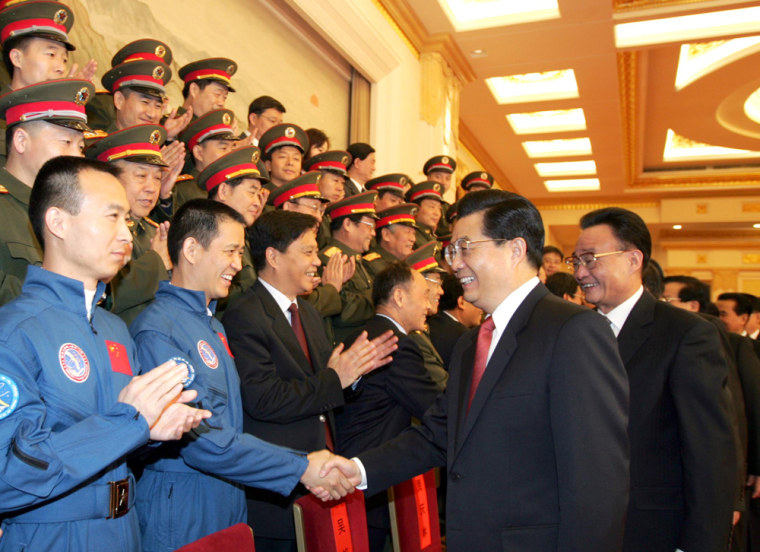Fresh from its second manned space mission, China’s space program wants to be able to put a man on the moon and build a space station in 15 years, an official said Sunday.
“I think in about 10 to 15 years, we will have the ability to build our own space station and to carry out a manned moon landing,” said Hu Shixiang, deputy commander of China’s manned space flight program.
But the goal is subject to getting enough funds from the government, Hu said, explaining that the space program must fit in the larger scheme of the country’s overall development.
Hu was in Hong Kong with the two astronauts who conducted China’s second successful manned space mission in October. He spoke during a televised question-and-answer session with executives from various television stations and newspapers.
Nie Haisheng and Fei Junlong circled Earth for five days aboard the Shenzhou 6 capsule, traveling 2 million miles in 115 hours, 32 minutes. China’s first manned mission was in 2003, when astronaut Yang Liwei orbited for 21 1/2 hours.
China wants to master the technology for a space walk and docking in space by 2012, Hu said. He said China was developing its space program at its own pace, not in competition with the United States. “It’s not the competition of the Cold War era,” he said.
Hu stressed China’s intention to use space exploration for peaceful ends, saying the government “is willing to work hard with people around the world for the peaceful use of space.”
He said Chinese space officials want to study the possibility of making rockets with the capacity to carry spacecraft weighing 27.5 tons — three times the capacity of their existing rockets — but the government hasn’t approved the funding.
Hu dismissed suggestions the space program is too costly for a country that, despite rapid economic growth, is still struggling to eradicate rural poverty.
He noted the recent space mission cost $111.4 million, compared to the $23.5 billion that China spent on combating pollution last year.
